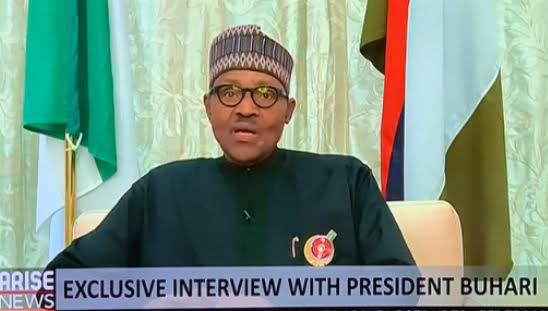The Buhari Media Organisation (BMO) has said that President Muhammadu Buhari deserves credit for gradually weaning the country off its over-reliance on oil revenue.
This, according to the group, is obvious from the recently published Gross Domestic Product (GDP) index which put the Q4 2022, aggregate GDP at N56.76 trillion, compared to N49.28 trillion in Q4 2021.
BMO said in a statement signed by its Chairman Niyi Akinsiju and Secretary Cassidy Madueke that the policies of the Buhari administration had been largely responsible for year-on-year economic growth.
“We note that the recently published annual GDP index of the Nigeria Bureau of Statistics (NBS) shows a 3.10 per cent slow down in Nigeria’s growth rate in 2022, compared to 3.40 per cent in 2021, but the aggregate figure showed an upward swing in GDP numbers.
“What we find particularly interesting is that the growth was largely driven by the non-oil sector which accounted for 95.66 per cent of growth while the oil sector contributed 4.34 per cent.
“This has been the trend in the Buhari years and this we make bold to say is as a result of the policy framework of the administration which centred around economic diversification.
“The figures of the last few years have shown that the non-oil sector has been the major driver for Nigeria’s GDP growth, unlike what President Buhari inherited.
“And now that the GDP figures of his last full year in office have shown a quantum improvement over that of 2021, it is crystal clear that this is a legacy that no one can begrudge the President as he prepares to leave office, ” the group added.
BMO said that the Agriculture sector under President Buhari has been a key contributor to the overall good performance of the non-oil sector
“In the year under review, growth in the agriculture sector was significantly hampered by severe flooding incidents across the country.
“But we invite Nigerians to note that it still ended up contributing 24.90 per cent to nominal GDP in Q4, 2022 lower than 27.55 per cent in the preceding year.
“ICT contributed 16.22 per cent to growth in Q4 2022, higher than 15.35 per cent in the preceding quarter and 15.21 per cent in Q4 2021, Manufacturing contributed 8.40 per cent to real GDP while Trade’s contribution to nominal GDP stood at 13.20 per cent in Q4, higher than 12.45 per cent in the preceding quarter.
“In all of these, we should not lose sight of the fact that Nigeria was on the receiving end of the Russia-Ukraine war which slowed down economic activities globally”.
The group added that the consistent good performance of the non-oil sector confirms its position that Buhari would leave the country better than he met it in 2015.








